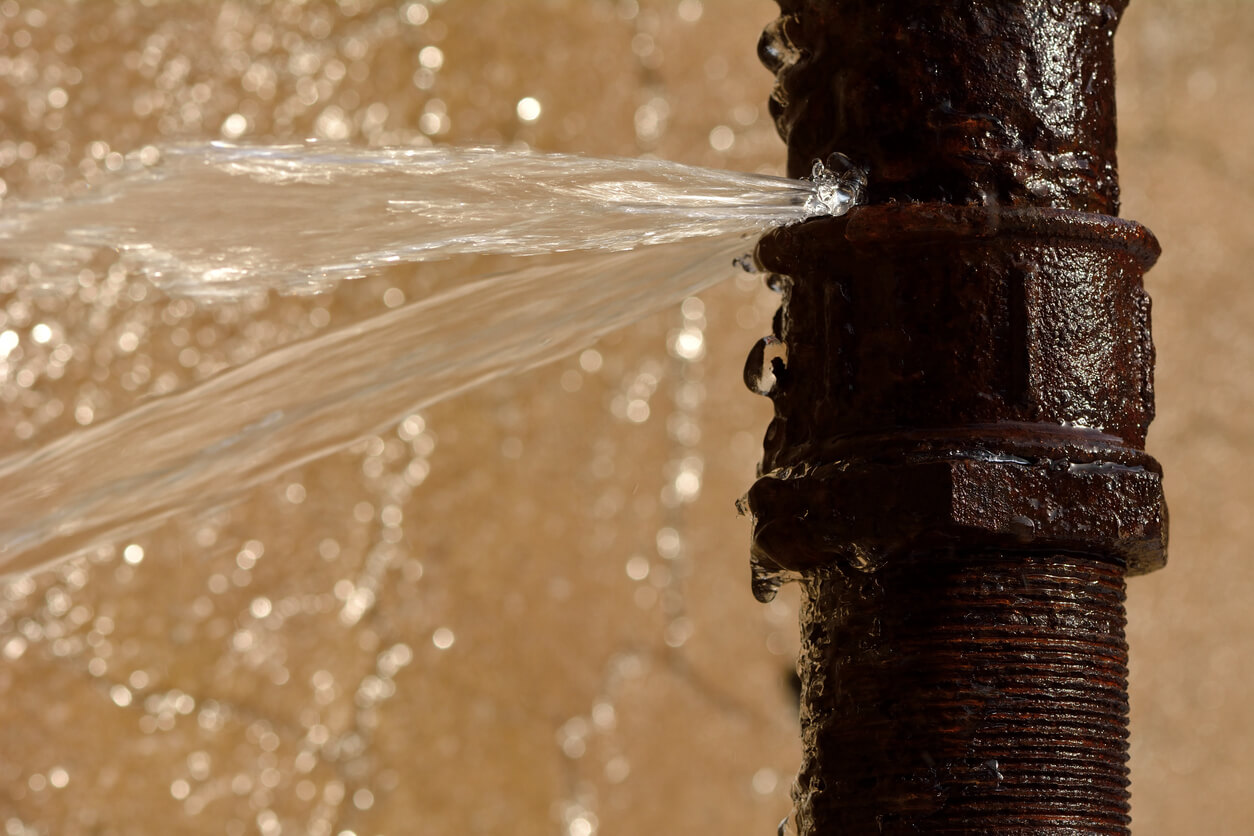There’s nowhere that you should feel safer than in your own home. That’s why it’s important to make sure that the different parts of your home are safe. One such part of your home is your pipes. While you may not realize it, your water pipes could pose a safety risk. Older pipes, especially those in homes built prior to 1930, run a higher risk of containing lead, a dangerous neurotoxin, which can contaminate your water. It can prove dangerous to anyone, but especially to children and pregnant women.
It wasn’t until 1986 that amendments were made to the federal Safe Drinking Water Act, which required “lead-free” (up to 8 percent lead) pipes and plumbing materials. Then, in 2011, the law was again amended so that “lead-free” meant no more than 0.25 percent lead. This went into effect in 2014.
Due to the negative impact that lead and other chemicals can have on the body, it’s imperative to ensure that your water pipes aren’t contaminated. Here’s how to check your water pipes to determine if they’re safe for your home.
- Be aware of the type of pipes you have.
Older pipes are often bad because they contain lead, but these pipes have often been replaced with plastic pipes. However, these pipes can also contain other chemicals. Copper pipes last longer and will not leach chemicals into your drinking water, but polypropylene pipes are even less expensive and less likely to contaminate your water. You may still want to contact the manufacturer to be sure that the pipes contain less than the mandated maximum amount of lead.
- Use “lead-free” faucets and fixtures.
Just as it’s important to ensure that your pipes are “lead-free,” so too is it important to make sure that your faucets and fixtures also have less than 0.25 percent lead. Using a faucet-mounted product with a carbon filter can be an inexpensive way of filtering for lead. Just be sure that the product is certified specifically by NSF International or the Water Quality Association for the removal of lead.
- Have your water tested.
Although you can take the proper steps to minimize the chances of having unsafe water pipes, the only way that you will actually know whether or not your water is contaminated is to have a state-certified commercial laboratory test it. You can do so by contacting your local public health department or local water utility.
- Call your water company.
Call you water company and ask to speak with a supervisor. Once connected, ask whether the utility-owned part of the service line is made of lead and if the company ever replaced a lead service line at your location. The utility company commonly owns the part of the service line that goes from the water main in the street partially to your home.
- Speak with a plumber.
If you’re unsure as to the type of water pipes in your home, a plumber can help. He or she can determine whether you have lead pipes, solder or fixtures, which you can then change if necessary.
Even Testing Has its Limits
It’s important to be aware that even testing has its own limits. You can test your home’s water and it may not show any lead contamination, but it doesn’t guarantee that the water going through the pipes is always safe. Since corrosion occurs over time and pieces of lead solder can break off, it’s imperative that you check your pipes every so often.
PALUMBO LAW Helps Those in Rhode Island with their Water Damage Claims
Filing a property insurance claim can be extremely confusing – and extremely frustrating. The last thing you want is to have your claim denied or delayed because of something that you did incorrectly. That’s why it’s so important to know how to file your claim from the beginning. An attorney can help to ensure that you properly file your property insurance claim.
At PALUMBO LAW, our experienced Rhode Island property insurance lawyers work strategically to help our clients to get what they deserve. We have deep experience working with insurance companies and understand how to deal with them. If you are planning on filing a flood damage claim, or if have already filed your claim and have been denied, we can help. To learn more or to schedule a free consultation, call us today!


